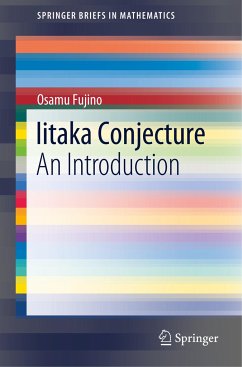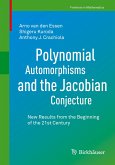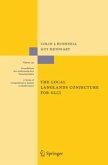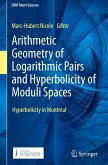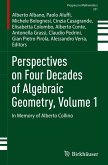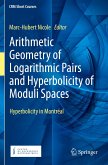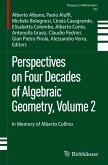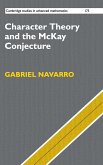The ambitious program for the birational classification of higher-dimensional complex algebraic varieties initiated by Shigeru Iitaka around 1970 is usually called the Iitaka program. Now it is known that the heart of the Iitaka program is the Iitaka conjecture, which claims the subadditivity of the Kodaira dimension for fiber spaces. The main purpose of this book is to make the Iitaka conjecture more accessible.
First, Viehweg's theory of weakly positive sheaves and big sheaves is described, and it is shown that the Iitaka conjecture follows from the Viehweg conjecture. Then, the Iitaka conjecture is proved in some special and interesting cases. A relatively simple new proof of Viehweg's conjecture is given for fiber spaces whose geometric generic fiber is of general type based on the weak semistable reduction theorem due to Abramovick-Karu and the existence theorem of relative canonical models by Birkar-Cascini-Hacon-McKernan. No deep results of the theory of variations of Hodge structure are needed. The Iitaka conjecture for fiber spaces whose base space is of general type is also proved as an easy application of Viehweg's weak positivity theorem, and the Viehweg conjecture for fiber spaces whose general fibers are elliptic curves is explained. Finally, the subadditivity of the logarithmic Kodaira dimension for morphisms of relative dimension one is proved.
In this book, for the reader's convenience, known arguments as well as some results are simplified and generalized with the aid of relatively new techniques.
First, Viehweg's theory of weakly positive sheaves and big sheaves is described, and it is shown that the Iitaka conjecture follows from the Viehweg conjecture. Then, the Iitaka conjecture is proved in some special and interesting cases. A relatively simple new proof of Viehweg's conjecture is given for fiber spaces whose geometric generic fiber is of general type based on the weak semistable reduction theorem due to Abramovick-Karu and the existence theorem of relative canonical models by Birkar-Cascini-Hacon-McKernan. No deep results of the theory of variations of Hodge structure are needed. The Iitaka conjecture for fiber spaces whose base space is of general type is also proved as an easy application of Viehweg's weak positivity theorem, and the Viehweg conjecture for fiber spaces whose general fibers are elliptic curves is explained. Finally, the subadditivity of the logarithmic Kodaira dimension for morphisms of relative dimension one is proved.
In this book, for the reader's convenience, known arguments as well as some results are simplified and generalized with the aid of relatively new techniques.
"This book is the first monograph about the Iitaka conjecture, a central conjecture in complex algebraic geometry. This survey is intended for graduate students and researchers who want to obtain a panoramic view of this profound conjecture. ... This very nice textbook covers in a pedagogical way the key results about positivity of direct image sheaves and gives a much better understanding of the Iitaka conjecture from the perspective of the minimal model program." (Julien Keller, Mathematical Reviews, April, 2022)
"The importance of Iitaka's conjecture is obvious to anyone who is aware of the notion of Kodaira dimension and its rôle in classification theory. ... the literature on positivity of direct image sheaves is vast and highly technical, this text gathers the most fundamental tools and makes Viehweg's theory more accessible. The use of the more recent contributions to the minimal model program simplifies some arguments, exposed in the author's precise style of writing." (Andreas Höring, zbMATH 1452.14002, 2021)
"The importance of Iitaka's conjecture is obvious to anyone who is aware of the notion of Kodaira dimension and its rôle in classification theory. ... the literature on positivity of direct image sheaves is vast and highly technical, this text gathers the most fundamental tools and makes Viehweg's theory more accessible. The use of the more recent contributions to the minimal model program simplifies some arguments, exposed in the author's precise style of writing." (Andreas Höring, zbMATH 1452.14002, 2021)

